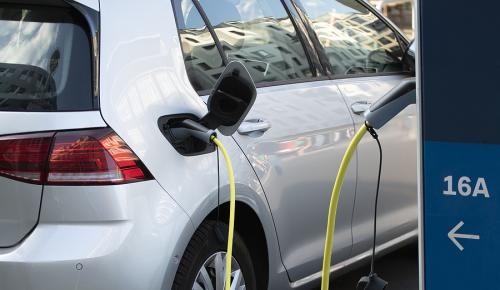Energy Justice
Synapse is committed to providing meaningful data and analysis to support important dialogue and efforts towards an equitable distribution of energy system benefits and burdens.

Overview
Synapse is committed to providing meaningful data and analysis to support important dialogue and efforts towards an equitable distribution of energy system benefits and burdens. We refer to this as Energy Justice. As energy experts, we collaborate with partners and clients to identify inequitable outcomes and develop solutions to rectify them. We apply our expertise in energy systems and processes to break down complicated economic and environmental problems and to facilitate a broader understanding of the issues involved. We describe and quantify equity impacts in energy policy and regulatory decision-making. We adapt and develop tools that capture these impacts and facilitate participation by communities traditionally left out of regulatory conversations.
We organize our capabilities around five key elements of energy justice:
- all communities have reliable access to energy sources that do not negatively impact their health or the environment (referred to as Access to Energy);
- energy is affordable (referred to as Affordability of Energy);
- communities or groups of individuals do not experience disproportionate harms from energy production, delivery, consumption, and waste disposal; historical negative impacts from the energy system on the economic, health, and social welfare and livelihoods are recognized and addressed (referred to as Health and Environmental Consequences of Energy);
- all workers in the energy industry are supported and fairly compensated as the industry transitions to cleaner, more distributed sources of energy, and ultimately energy workers reflect the composition of the communities they serve (referred to as Just Transition and Labor); and
- all have a say in energy decisions and policies that impact them (referred to as Civic Agency and Energy Democracy).
Access to Energy
In many places in the U.S. and elsewhere, the ability to switch energy sources and access to clean and reliable electricity, distributed energy resources, electric vehicles, and other fuels is not uniform or equitable. Synapse supports our clients with statistical and geospatial analysis of access to clean energy resources relative to income, homeownership, race, and other factors. We make recommendations on reforms to utility regulation, planning, and processes to eliminate barriers that underrepresented communities face with making energy improvements.
Energy Affordability
Synapse supports our clients with analysis of energy affordability, including rate structures, rate and bill impacts, program design, and how benefits (including non-energy benefits) are distributed among participants. We recognize that certain populations experience disproportionate burdens as a result of high energy costs. Energy burden--the share of income spent on energy expenditures–can be exacerbated by poor housing conditions, income disparities, historically exclusionary policies, as well as other factors. We recommend tailored strategies to increase energy affordability for all, such as targeted clean energy programs, rate restructuring, and energy assistance.
Health & Environmental Consequences
Populations face uneven health and economic burdens from pollution and climate change related to energy extraction, generation, consumption, and waste disposal. Synapse assesses and provides recommendations for addressing disparate impacts of electric and natural gas infrastructure on health outcomes for low-income groups, rural communities, people of color, and neighborhoods with high pollution exposure.
Just Transition & Labor
The clean energy transition has the potential to exacerbate or mitigate existing economic and employment inequities. Synapse assists clients with modeling of employment and other economic impacts of fossil fuel transition policies and targeted investment in clean energy resources and infrastructure.
Civic Agency & Energy Democracy
Energy equity requires a foundation of self-determination, reflected in participation and say in energy decision-making, more choices, and greater knowledge of options and benefits of different resources. We conduct analysis to support community-led solutions and to better understand options to increase self-determination, such as community choice aggregation. Synapse provides guidance on ways to improve access to decision-making processes and provides transparent, digestible analysis to inform participation by all affected people.
Contact an Expert





